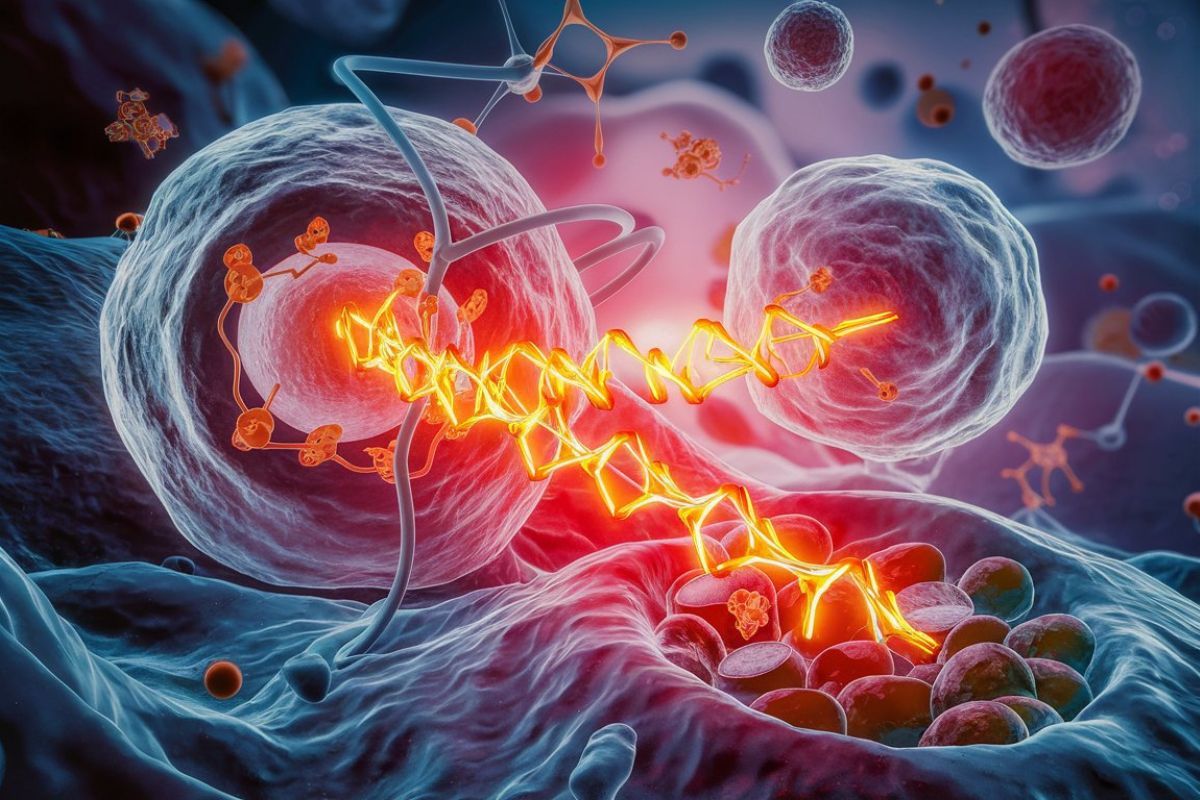
Adenosine Triphosphatase Deficiency might sound like a mouthful, but understanding it can be quite simple. This condition affects the body's ability to produce energy, leading to various symptoms that can impact daily life. Adenosine triphosphatase (ATPase) is an enzyme crucial for energy transfer within cells. When ATPase doesn't function properly, energy production drops, causing fatigue, muscle weakness, and other health issues. This deficiency can be genetic or acquired, and its effects range from mild to severe. Knowing the facts about this condition can help in recognizing symptoms early and seeking appropriate treatment. Let's dive into 15 key facts about Adenosine Triphosphatase Deficiency to better understand its impact on health.
What is Adenosine Triphosphatase Deficiency?
Adenosine Triphosphatase (ATPase) deficiency is a rare genetic disorder affecting the body's ability to produce energy. ATPase enzymes are crucial for cellular energy production. When these enzymes are deficient, it can lead to various health issues.
-
ATPase enzymes are vital for energy production. These enzymes help convert adenosine triphosphate (ATP) into adenosine diphosphate (ADP), releasing energy for cellular functions.
-
The deficiency is genetic. Mutations in specific genes responsible for ATPase production cause this disorder. These mutations can be inherited from one or both parents.
Symptoms of ATPase Deficiency
Symptoms can vary widely depending on the severity of the deficiency and which tissues are most affected. Here are some common symptoms:
-
Muscle weakness and fatigue. Due to insufficient energy production, individuals often experience chronic muscle weakness and fatigue.
-
Developmental delays in children. Children with ATPase deficiency may show delayed milestones in motor skills and cognitive development.
-
Neurological issues. Seizures, poor coordination, and other neurological problems can occur due to impaired energy supply to the brain.
Diagnosis of ATPase Deficiency
Diagnosing ATPase deficiency involves several steps, including genetic testing and clinical evaluations. Early diagnosis is crucial for managing symptoms effectively.
-
Genetic testing confirms the diagnosis. By analyzing DNA, doctors can identify mutations in the genes responsible for ATPase production.
-
Muscle biopsies may be performed. Examining muscle tissue under a microscope can reveal abnormalities in ATPase activity.
Treatment Options
While there is no cure for ATPase deficiency, various treatments can help manage symptoms and improve quality of life.
-
Physical therapy helps maintain muscle strength. Regular physical therapy sessions can help individuals maintain muscle function and mobility.
-
Medications can control seizures. Anti-seizure medications are often prescribed to manage neurological symptoms.
-
Nutritional support is essential. A balanced diet rich in essential nutrients can support overall health and energy levels.
Prognosis and Life Expectancy
The prognosis for individuals with ATPase deficiency varies widely. Factors such as the severity of the deficiency and the effectiveness of symptom management play a role.
-
Life expectancy can be normal with proper management. With appropriate treatment and care, many individuals can lead relatively normal lives.
-
Severe cases may have a reduced life expectancy. In cases where the deficiency severely impacts vital organs, life expectancy may be shortened.
Research and Future Directions
Ongoing research aims to better understand ATPase deficiency and develop new treatments. Scientists are exploring various approaches to improve outcomes for affected individuals.
-
Gene therapy holds promise. Researchers are investigating gene therapy as a potential treatment to correct the genetic mutations causing ATPase deficiency.
-
New medications are being developed. Scientists are working on drugs that can enhance ATPase activity or compensate for its deficiency.
-
Patient registries help track progress. By maintaining registries of affected individuals, researchers can gather valuable data to inform future studies and treatments.
Understanding ATPase Deficiency
Adenosine Triphosphatase (ATPase) deficiency is a rare but significant condition affecting cellular energy production. This enzyme plays a crucial role in converting energy from food into a usable form for cells. Without enough ATPase, cells can't function properly, leading to various health issues. Symptoms can range from muscle weakness to severe neurological problems. Early diagnosis and treatment are vital for managing the condition and improving quality of life.
Research continues to uncover new insights into ATPase deficiency, offering hope for better treatments in the future. Awareness and education about this condition can help those affected get the support they need. If you or someone you know shows symptoms, consult a healthcare professional for proper evaluation and care. Understanding ATPase deficiency empowers us to take proactive steps towards better health and well-being.
Was this page helpful?
Our commitment to delivering trustworthy and engaging content is at the heart of what we do. Each fact on our site is contributed by real users like you, bringing a wealth of diverse insights and information. To ensure the highest standards of accuracy and reliability, our dedicated editors meticulously review each submission. This process guarantees that the facts we share are not only fascinating but also credible. Trust in our commitment to quality and authenticity as you explore and learn with us.


